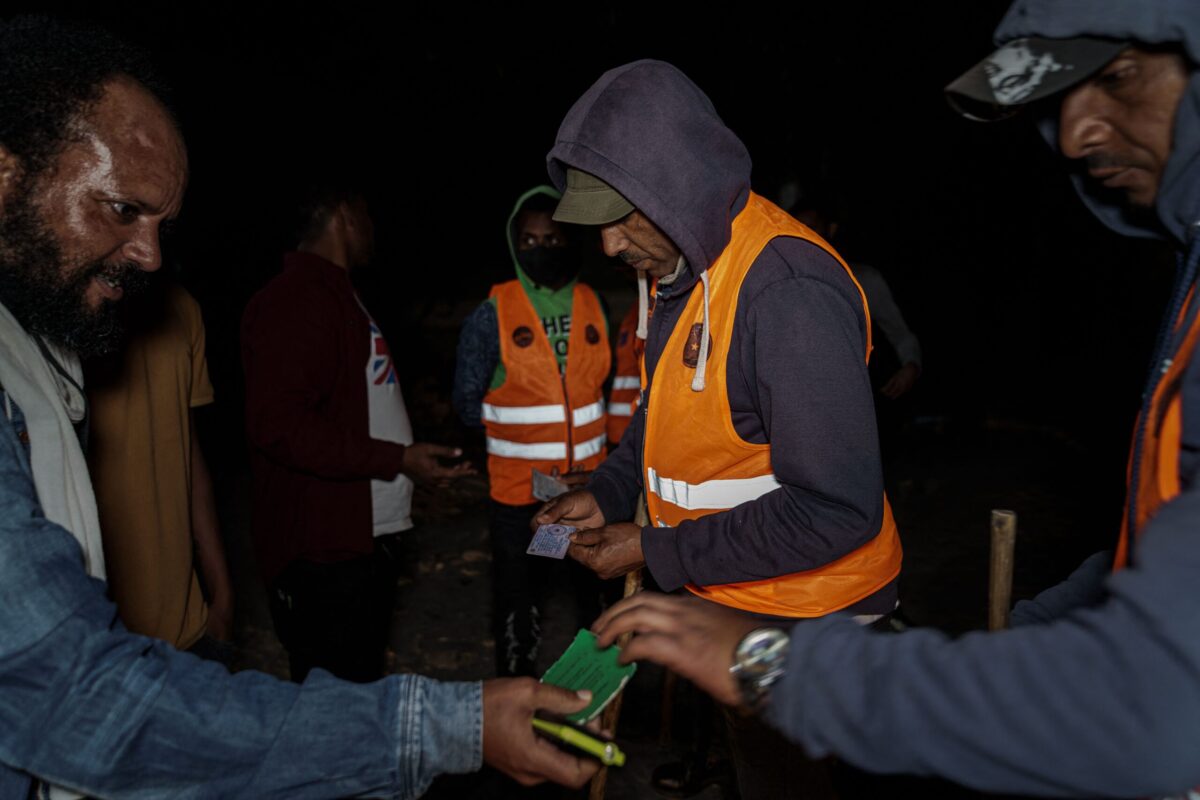More than 2,000 Afghans who fled their country after the Taliban took power are being detained indefinitely in the United Arab Emirates, according to a new report from Human Rights Watch.
An estimated 2,400 to 2,700 Afghans have been “arbitrarily detained” in a housing facility dubbed “Emirates Humanitarian City” for more than 15 months, the organization said in its report, released Tuesday. Having no idea what their future holds and being confined to a prison-like facility for months has taken a severe toll on their physical and mental well-being.
Advertisement
“We are not criminals,” Ahmad, who resides in the facility and asked to be identified by a pseudonym because he feared for his safety, told HuffPost. “We had to leave because our lives were in danger, and we shouldn’t be treated like prisoners.”
The majority of the people who remain detained lack status. They are ineligible for immigrant visas, are not considered refugees since UAE is not a signatory to the 1951 Refugee Convention, and cannot request asylum in a third country. But they’re also typically not aware of these complications, as they have no access to legal assistance, according to the HRW report.
“We are completely in the dark about this whole thing,” Ahmad said. “We don’t know why some got flights while we didn’t. We have no idea what comes next, and we don’t know who to go for help.”
Some 12,000 Afghan evacuees were initially brought to the facility after Kabul fell to the Taliban in August 2021. Some were airlifted by the U.S. military aircrafts as part of “Operation Allies Welcome,” and some U.S. veterans and non-governmental groups arranged civilian-chartered flights to bring more people to the UAE after the airlift operation ended. Many of the evacuees had fled Afghanistan because they feared being persecuted or killed as ethnic or religious minorities, LGBTQ people, journalists, activists or judges.
Advertisement
People have repeatedly protested the slow and ambiguous process, including the lack of clarity over who is given priority for onward flights. The U.S. has mainly focused on relocating those who had ties to the U.S. and had been flown in under government operations.
As of September 2022, the United States had granted entry to over 88,000 Afghans, but thousands are still awaiting admission into the country due to pending statuses, including through the special immigrant visa and the refugee admissions program, a type of visa issued to those who served with U.S. military and diplomatic missions. Other countries, including Canada, Australia and Germany, have also taken some evacuees.
The evacuees who remain in the UAE have been left to their own fate, often consoled with false assurances.
“They’ve been promising us flights for months and nothing has happened yet,” Ahmad said.
NurPhoto via Getty Images
“Governments should not ignore the shocking plight of these Afghans stranded in limbo in the UAE,” Joey Shea, UAE researcher at Human Rights Watch, said in the report. “The U.S. government in particular, which coordinated the 2021 evacuations and with whom many evacuees worked before the Taliban takeover, should immediately step up and intervene to provide support and protection for these asylum seekers.”
Advertisement
Mara Tekach, the coordinator of the State Department’s Afghan relocation effort, said in a letter to the HRW that the U.S. is still committed “to relocate and resettle all eligible Afghans” including those “eligible Afghans” located at the UAE facility.
Afghans are being held in apartment buildings located in an industrial district of Abu Dhabi that has been turned into a temporary refugee housing facility. The facility’s management and provision of essentials like food, health care and education are under the control of the UAE government.
Families are provided with one small room, according to the HRW report, while single men are kept in separate halls and in shared rooms with other single men.
Human Rights Watch spoke with 16 Afghan detainees, who all complained about the facility’s poor condition, including food quality and schooling options for children.
The report also lists overcrowding, infrastructure decay and bug infestation complaints. Movement is severely restricted. Only some necessary hospital visits and rare group shopping — under careful supervision — are allowed outside the complex. The building is also off-limits to outside visitors.
Advertisement
People with severe health conditions who need specialized care have had trouble getting medical care, according to the report. Many adults and children suffer from mental health conditions like depression, but they do not receive sufficient psychosocial support.
“Some people even have suicidal thoughts,” Ahmad said. “Even children are depressed and don’t know what to do with their daily lives.” He said his daughter, who can’t make new friends or try new activities, has lost all her motivation, gone completely quiet, and has no interest in school.
“I am more concerned about my children and their future,” Ahmad said. “We can’t go back, and there is no way forward either.”
Related posts:
Views: 0
 RSS Feed
RSS Feed

















 March 17th, 2023
March 17th, 2023  Awake Goy
Awake Goy 





 Posted in
Posted in  Tags:
Tags: 
















